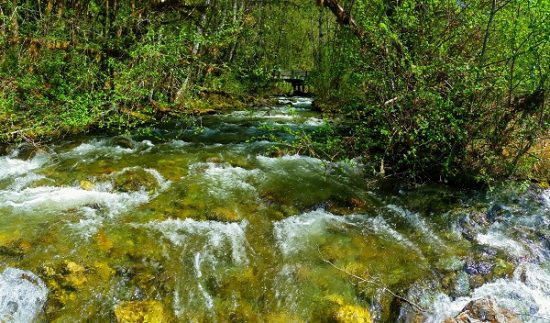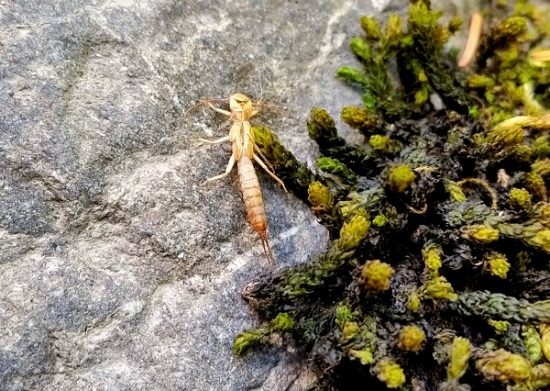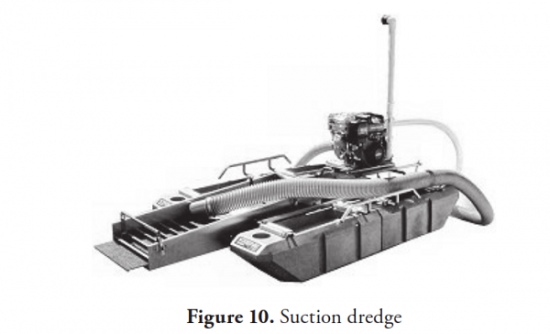
Washington Lawmakers Ban Suction Mining In ESA Fish Habitat
Washington anglers, tribal fishermen and others are hailing the passage of a bill banning suction dredge mining in critical salmon, steelhead and bull trout streams across the state.

“This legislation is a common-sense reform to protect habitat and water quality in areas of Washington state most critical to the recovery of salmon and steelhead. I appreciate the support for this bill from all over the state,” said Sen. Jesse Salomon (D-Shoreline), a salmon fisherman who cosponsored a similar bill in the upper chamber.
ESHB 1261 was supported by numerous Trout Unlimited chapters, along with the Wild Steelhead Coalition, Washington Wildlife Federation, Seattle Poggie Club, state agencies such as WDFW and DNR, and 10 tribes.
“To us it is the salmon – not the few flecks of gold that recreational miners can suck out of our rivers and streams – that is the real treasure,” said Lorraine Loomis, Northwest Indian Fisheries Commission chairwoman, in urging lawmakers to approve the bill.
It passed 60-35 in the House and 37-10 in the Senate and now heads to Gov. Jay Inslee’s desk for signing.
The bill will apply to critically designated rivers and streams in which Endangered Species Act-listed fish stocks spawn and rear, while still allowing prospectors to pan or use other nonmotorized methods to search for gold in them.
The effort has been building in recent years, especially as neighboring states pinched down on the practice of suction dredging which was said to be increasing in the Evergreen State.
“For years, we’ve had enormous taxpayer investment in restoring water quality and fish habitat while we let outdated motorized suction dredge mining laws needlessly threaten our most sensitive fish populations. Today, our lawmakers remedied this glaring oversight in our regulations,” said Crystal Elliot, TU’s Washington habitat director.

Indeed, as ESA listings have piled up in recent years, anglers have seen shorter fishing seasons and more restrictions.
In 2015, after a winter with very low snowfall and then very hot summer temperatures due to The Blob — the marine heatwave — WDFW instituted unprecedented hoot owl fishing hours to protect listed fish stocks during the heat of the day.
It wasn’t until a month later that the agency took the rare step to bar or restrict suction dredging in many of the same streams.
The following winter, ahead of the legislative session, an OPB story included a video that showed a small pit that miners had made in the bed of and to the side of a low-running Chelan County stream near Leavenworth.
“This looks like a bomb went off,” commented TU member Gregg Bafundo.
Miners must follow WDFW’s Gold and Fish pamphlet, which governs mineral prospecting and placer mining, and they’ve been required to get a hydraulic project approval permit to suction dredge.
They can only work when fish aren’t spawning and only in the main current of the stream. Pits also have to be refilled.

In that OPB story, it was acknowledged that pits could serve as temporary thermal refuges, and while the silt that’s stirred up by suction mining might include some insect larvae or crawdads for downstream fish to eat, it also adds turbidity, which can be a problem on smaller streams.
During public hearings on the bill in Olympia, miners argued that their impacts were trivial and that they felt they were being picked on.
To be sure, the massive and ongoing alteration of the region as it develops has had and will continue to have far larger impacts on fish and fish habitat than small-scale prospectors and their suction dredges ever will.
That makes passage of the bill something of a feel-good measure, like what lawmakers did last year in liberalizing limits on largemouth and smallmouth bass, walleye and channel catfish in hopes anglers harvest more and thus more Chinook smolts are able escape to the North Pacific, where they would become available to orcas to forage on.
But for those fighting to turn the tide on overwhelming fish habitat issues, it is a victory to tout for trout and other salmonids, as well as cleaner waters.
“As a lifelong fly fisherman, I’m proud to support this commonsense approach that protects habitat and ensures compliance with the Clean Water Act and Endangered Species Act,” said House sponsor of HB 1261, Rep. Strom Peterson (D-Edmonds).




